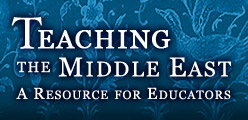Scriptural Interdependence and Reductionism
There has been much debate over the relationship between the different scriptures of the monotheistic traditions—Hebrew Bible, Gospels (New Testament), and Qur’an. These debates are often the field on which interreligious polemics among Judaism, Christianity, and Islam have been pursued, with champions of one tradition attempting to discredit the others by pointing out discrepancies between their own scripture and that of the rival(s). Christian polemicists sometimes try to show that Jesus, whom they consider the messiah or savior predicted in parts of the Hebrew Bible, is anticipated in those scriptures and that Jesus’ preaching and ministry transcended the strictures of the Jewish Law (hence their somewhat disparaging reference to the Hebrew Bible as the “Old Testament”). Christians sometimes even attempt to minimize or deny the Jewish origins of the Christian movement. Jewish polemicists, for their part, reject Christian claims that Jesus was the messiah and an incarnation of God, and dismiss as unfounded the “predictions” of Jesus’ ministry Christians identify in the Hebrew Bible. Both Christian and Jewish polemicists emphasize the “dependency” of some parts of the Qur’an on the Hebrew Bible or other writings of the Jews or Christians, stating that since the Qur’an “borrowed” from their tradition, it is derivative and therefore not worthy of one’s faith. Muslim polemicists, for their part, argue that their scripture, the Qur’an, represents the final and most perfect version of God’s revelation, and that the differences between the Qur’an and both Hebrew Bible and Gospels are because the latter have been distorted since their original revelation.
In each case, the polemicists engage in reductionism—attempting to reduce a rival tradition, with which it has much in common, to a distorted version of their own tradition. A more balanced view, however, would be to consider each of these traditions an original creation that draws on and provides a unique formulation of a common stock of religious ideas: monotheism, prophecy, revelation, scripture, judgment, afterlife, etc. As such, each is equally “authentic” and worthy of respect as a faith-system.
Supporting Links:
Center for Jewish-Christian-Muslim Understanding, Inc., The. Link to resource![]() (accessed April 27, 2010).
(accessed April 27, 2010).
ReligionFacts: Just the facts on the world’s religions. Link to resource![]() (accessed April 27, 2010).
(accessed April 27, 2010).
 Fred M. Donner
Fred M. Donner
Professor of Near Eastern History, University of Chicago
Guiding Questions
1. In what ways would one benefit from examining each religious tradition as an “original creation” and “unique?” Conversely, given the individual relationship between man and deity within monotheistic faiths, why would examination be a very challenging task for some faithful whose faith involves (or demands) proselytizing?
2. What advantage and damage can interreligious polemics have upon the communities belonging to different faiths? Briefly identify two or three examples of this advantage/damage in world history.



